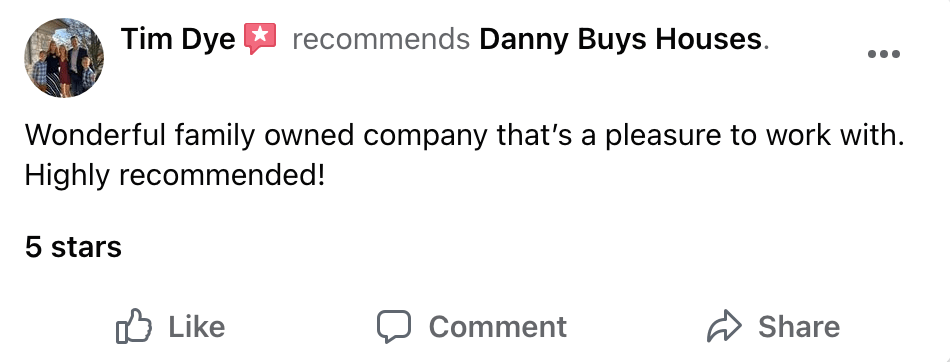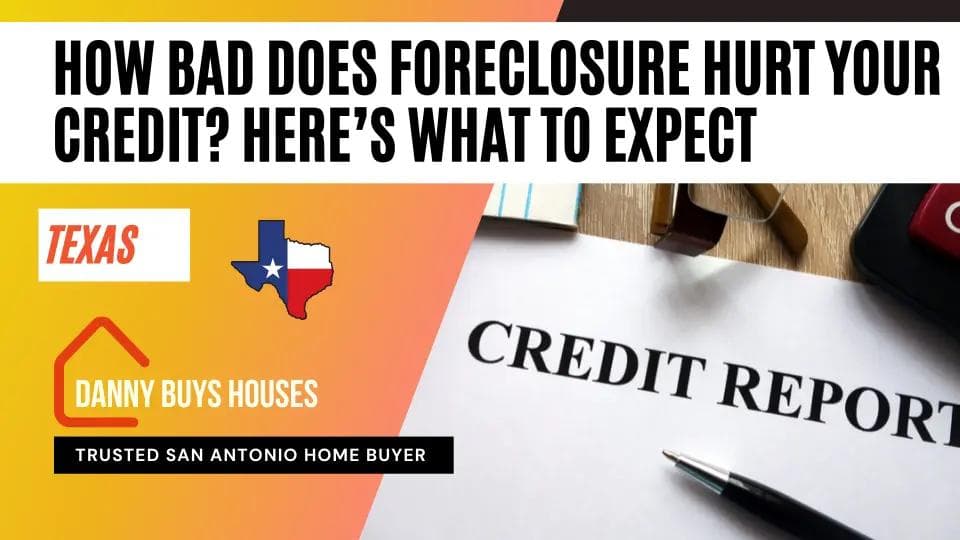
How Bad Does Foreclosure Really Hurt Your Credit? Here's What to Expect
By Danny Johnson | Updated 9/27/2024, 2:07:28 PM
Discover how foreclosure can impact your credit score and stay on your credit report for seven years. Learn strategies to rebuild your credit effectively.
- Key Takeaways
- How Bad Does a Foreclosure Hurt Your Credit?
- FICO Score Impact Estimates
- Comparison to Other Negative Credit Events
- Long-term Consequences on Creditworthiness
- How Long Does a Foreclosure Stay on Your Credit Report?
- Does pre foreclosure affect credit score?
- What is the Timeline For Damage to Your Credit During Foreclosure?
- Reporting Late Payments
- Credit Score Decline Timeline
- Legal Implications
- Rebuilding Your Credit After Foreclosure
- Conclusion
🗂 Table of Contents
Losing your home to foreclosure is a tough experience. I've seen the pain in my friend's eyes as she handed over her house keys, dreams shattered. The emotional toll is heavy, but what about the impact on your credit score? It's a financial nightmare that can haunt you for years.
Foreclosure is a black mark on your credit report, second only to bankruptcy in its severity. It's not just about losing your home; it's about losing financial credibility. Your FICO score, that three-digit number lenders use to gauge your creditworthiness, takes a nosedive. The higher your score was, the harder it falls.
Imagine watching your credit score plummet by 100 points or more overnight. That's the reality for many facing foreclosure. It's a blow that can affect everything from future home loans to job opportunities. The road to recovery is long, but not impossible.
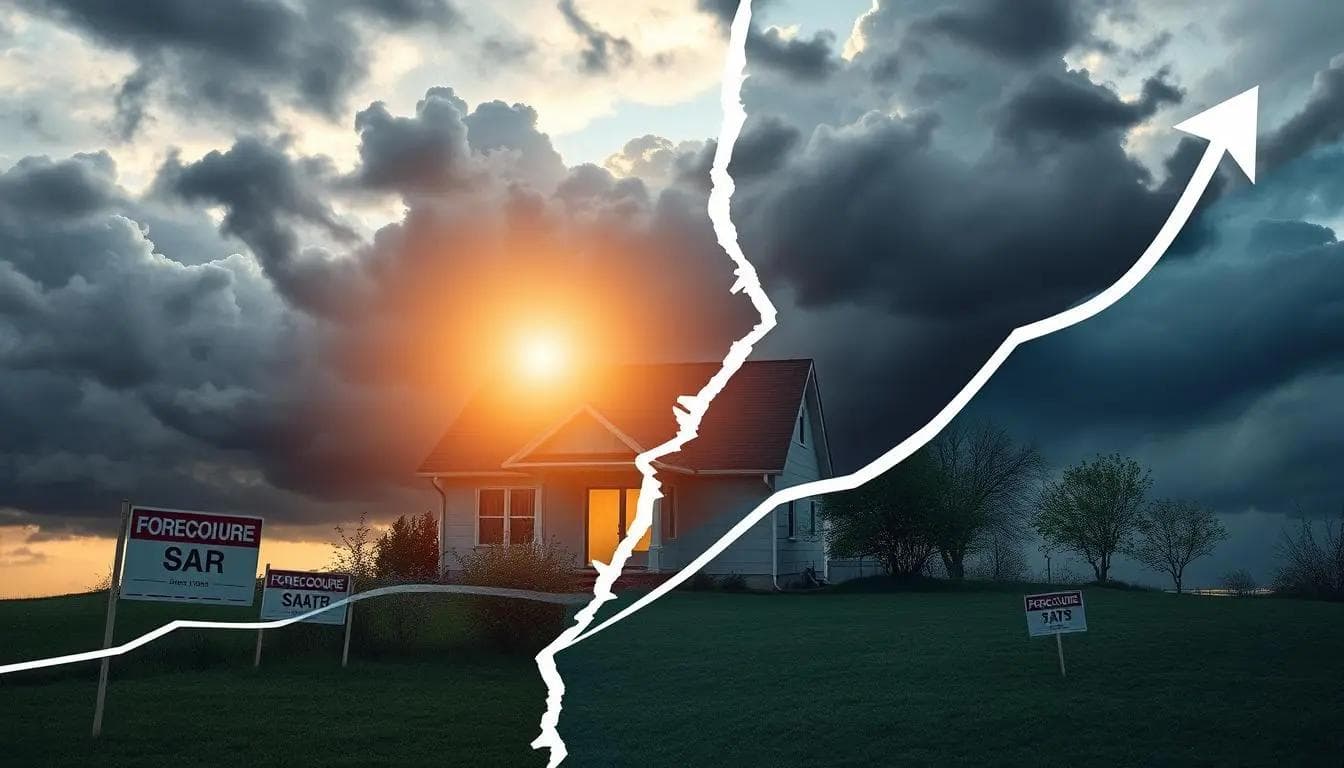
Let's dive into the nitty-gritty of how foreclosure impacts your credit and how long a foreclosure will remain on your credit report. We'll explore the immediate effects, long-term consequences, and steps you can take to rebuild. Whether you're facing foreclosure or just want to understand the risks, this guide will shed light on what to expect.
Key Takeaways
- Foreclosure appear on your credit report for seven years from the date of the first missed payment that led to the foreclosure
- Credit scores can drop by a massive 85 to 160 points after foreclosure
- Higher credit scores face more significant drops
- Foreclosure is second only to bankruptcy in how it may impact your credit
- Some lenders may consider mortgage applications a few years post-foreclosure
- Payment history makes up 35% of your FICO score
- Rebuilding credit is possible with secured credit cards and responsible habits
- A foreclosure cannot be removed from your credit report before 7 years has passed
If you are facing foreclosure and the auction date is within a couple weeks, you might want to sell your house to avoid foreclosure. We will cover how to do this by selling to a cash home buyer in San Antonio, TX.
How Bad Does a Foreclosure Hurt Your Credit?
A foreclosure on your credit can severely hurt your credit score. The FICO score, used by many lenders, drops a lot when you have a foreclosure. Let's look at how much damage it causes and its lasting effects on your credit.
FICO Score Impact Estimates
Foreclosure can significantly lower your FICO score. If you have good credit, expect a 100-point drop. For those with excellent credit, it could be as much as 160 points. This can move you to a lower credit category, making it harder to get loans.
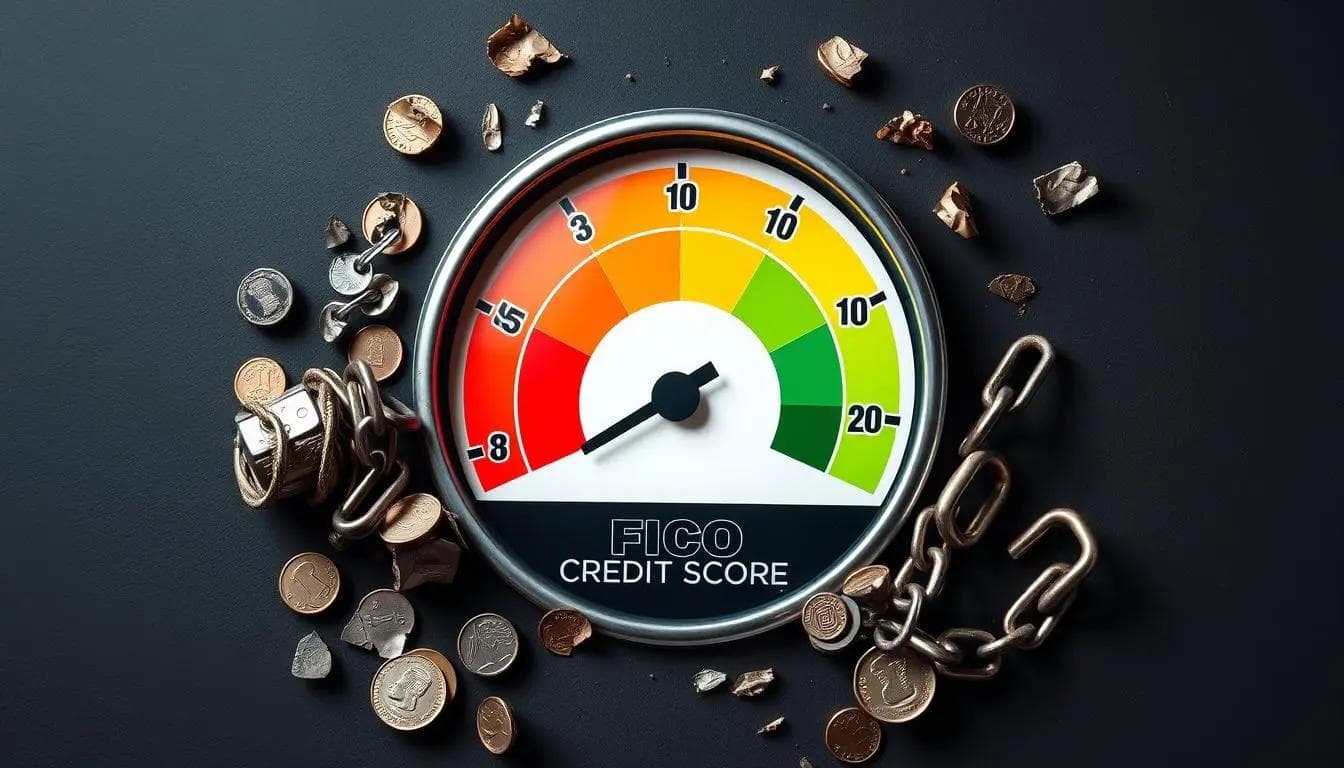
Comparison to Other Negative Credit Events
Foreclosure is one of the worst credit hits. It's similar to a short sale in impact. Both can stay on your report for up to seven years. Late payments hurt your score, but foreclosure is worse, especially for your payment history.
Long-term Consequences on Creditworthiness
The effects of a foreclosure last a long time. You might find it hard to get conventional mortgages. You could also face higher interest rates on loans and job challenges, as some employers check credit scores.
A foreclosure may result in:
- Difficulty obtaining conventional mortgages
- Higher interest rates on future loans
- Potential employment challenges, as some employers check credit scores
Recovering from a foreclosure takes time. It can take three to seven years. During this time, focus on rebuilding your credit. Pay your bills on time and keep your credit utilization low.
The credit utilization is something most people do not ever consider. I've personally improved my credit by making sure I do not have more than 30% of my credit limits used.
I couldn't figure out why my credit score wasn't higher as I paid off my credit cards every month. It was because of the credit utilization. I was using over 60% every month. Doh!
According to Louis Denicola from Experian, "Your credit utilization rate is the percentage of available credit that you’re using on your credit cards and other lines of credit. It’s based on the balances that appear in your credit report. In general, a lower utilization rate is best."
While recovery is a long journey, it's possible. Do some research on Google and get help from credit counselors to guide you through this tough time. Work towards improving your creditworthiness and you can find your credit returned to normal.
How Long Does a Foreclosure Stay on Your Credit Report?
A foreclosure can really hurt your credit history. It stays on your report for seven years from the first missed payment. This can lower your FICO score and make it hard to get new credit.
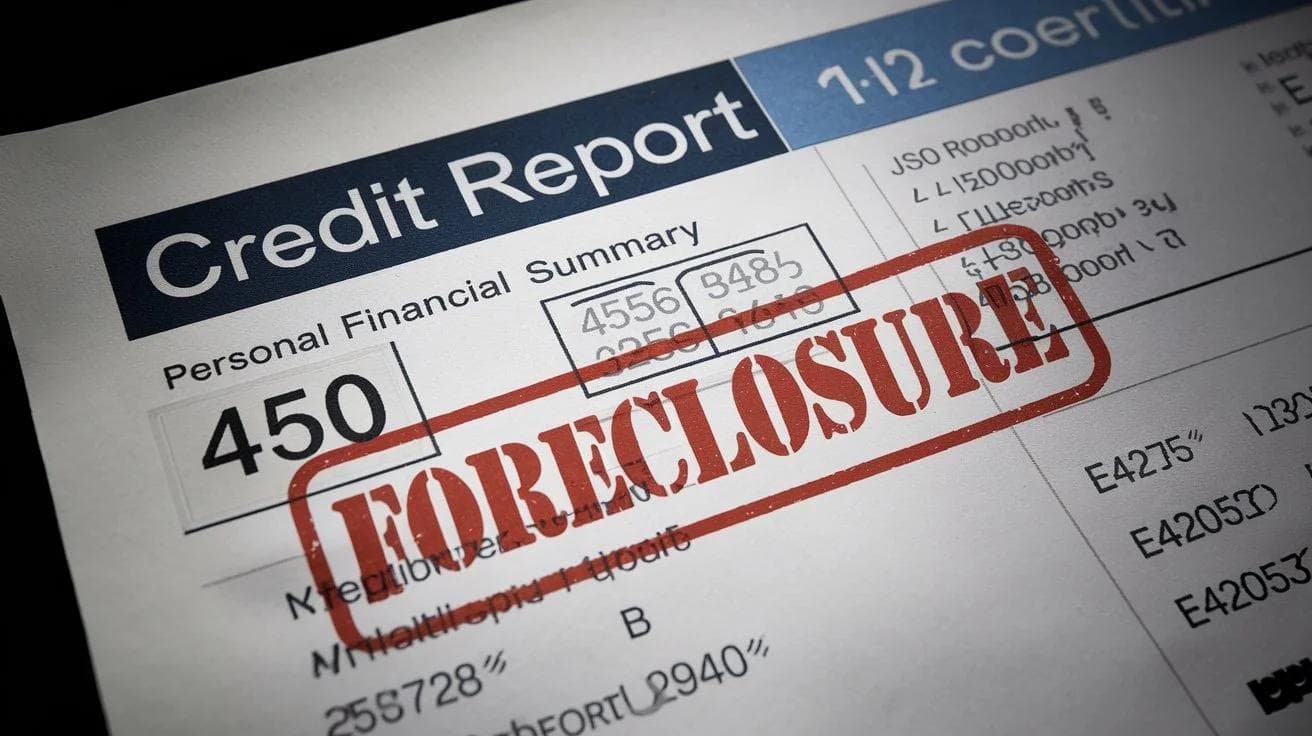
The three big credit bureaus - Experian, TransUnion, and Equifax - list foreclosures. Your score might drop by 100 to 300 points, depending on your score before. This drop can last for years, but it will get better over time.
According to USA.gov, "By law, you can get a free credit report each year from the three credit reporting agencies (CRAs). These agencies include Equifax, Experian, and TransUnion."
It's important to keep an eye on your credit during this time. You can get a free credit report from each bureau every 12 months. Visit AnnualCreditReport.com or call 877-322-8228 to get yours. Checking your report regularly helps you see how your credit is improving and find any mistakes.
"A sudden dip in your credit score usually means a new negative item has been added to your report." John Wickensen, Credit Counselor
In some cases, you might be able to get a foreclosure removed from your report sooner:
- If the lender goes out of business
- If the lender dismisses the foreclosure lawsuit
- If the foreclosure can't be verified with supporting documentation
Rebuilding your credit after a foreclosure takes time and effort. Getting help from a professional credit counselor can be very helpful. They can guide you on managing your debt and budgeting.
Does pre foreclosure affect credit score?
Pre-foreclosure can really hurt your credit score. Missing mortgage payments can lower your score. Mortgage lenders report late payments to credit bureaus after 30 days.
This means your score can drop before foreclosure even starts. The pre-foreclosure period can last from a few months to over a year. Each missed payment can lower your score further.
A lot of people are surprised to find out it doesn't take many months behind on payments to start foreclosure.
The impact on your credit score can be big. You might see a drop of up to 100 points or more before foreclosure is finalized. This can make it tough to get loans, rent apartments, or even find jobs.
- Late payments reported after 30 days
- Credit score drops with each missed payment
- Pre-foreclosure can last months or over a year
- Potential 100+ point drop in credit score
If you're facing pre-foreclosure, act fast. Talk to your mortgage lender about options like loan modification or repayment plans. These steps might help you avoid foreclosure and protect your credit score.
If your timeline to the foreclosure auction is much sooner, you might want to consider selling your house for cash to a house buying company. This will allow you to pay off the loan and stop the foreclosure. Companies like Danny Buys Houses pay cash for houses. This allows them to close within as little as 7 days. If you are facing the prospect of losing all of your equity, consider calling one of these cash home buyers to try and get something and avoid the foreclosure.
What is the Timeline For Damage to Your Credit During Foreclosure?
Foreclosure can really hurt your credit score. Late payments start the decline, leading to a big drop in score. Knowing the timeline helps you get ready for the financial hit.
Reporting Late Payments
Mortgage companies report late payments after 30 days. Each missed payment can lower your score by 40 to 110 points. After 90 days, foreclosure usually starts.
Credit Score Decline Timeline
Your credit score keeps falling as foreclosure moves forward. By the end, your score might show six months of missed payments. This could drop your score by up to 200 points.
Legal Implications
Foreclosure laws differ in recourse and non-recourse states. In recourse states, lenders can go after you for a deficiency judgment. This can lead to more financial problems, even bankruptcy.
This may not be as much an issue in 2024. According to Jarrett Law Firm, "Right now, there are plenty of buyers for real estate, so a deficiency judgment is not as likely as they were back in the housing market crash of 2008. At that time, the value of houses went down to entice buyers. If you wanted to sell but your house back in 2008, but the value had gone down, the home often was not worth the amount of the loan you had taken out. "
It's important to get professional help if facing foreclosure. This way, you can explore options and lessen the long-term financial damage.
Rebuilding Your Credit After Foreclosure
Rebuilding credit after foreclosure is a long-term effort. A foreclosure can drop your credit score by 100 points or more. It stays on your report for seven years. But, you can start improving your creditworthiness right away.
Focus on these key strategies:
- Pay all bills on time. Payment history makes up 35% of your credit score.
- Keep credit card balances low. Aim for a credit utilization rate under 30%, ideally 10% or less.
- Consider a secured credit card. These require a deposit that becomes your spending limit.
- Build an emergency fund to avoid future financial crises.
A secured credit card can be a useful tool for credit repair. It reports to credit bureaus like a regular card, helping you establish a positive payment history. Just be sure to make all payments on time and keep your balance low.
Avoid quick-fix credit repair companies. Instead, focus on steady improvement through responsible financial choices. Track your progress with free credit monitoring services. They can alert you to potential fraud and show how your efforts are paying off.
Remember, rebuilding takes patience. But with consistent effort, you can improve your credit score and regain financial stability. If you need guidance, consider credit counseling from a reputable non-profit organization.
"The best way to predict your future is to create it." - Abraham Lincoln
Conclusion
Foreclosure can really hurt your credit score, dropping it by 100 to 160 points. This damage stays on your report for up to seven years. It can make it hard to get loans or credit in the future.
But, you can work to improve your credit score. Start by paying bills on time and keeping a good mix of credit types. Tools like secured credit cards and credit-builder loans can help.
After two years, you might be able to refinance your mortgage. But, you'll likely face higher interest rates because of the risk.
Getting help from credit counseling can be very helpful. Remember, your payment history is 35% of your score. So, always pay on time. Check your credit often to see how you're doing and fix any problems right away.
With time and effort, you can recover from foreclosure. You can get back on track financially.
If you need to sell your house to avoid foreclosure, contact a house buying company like Danny Buys Houses. They make it possible to sell your house while in foreclosure. If you are in San Antonio, Tx or anywhere in south Texas, contact us to get a no-obligation cash offer. We are happy to help in any way we can.

AUTHOR
Danny Johnson
Owner and Founder at Danny Buys Houses
Danny Johnson is an experienced real estate investor who has been buying houses for cash since 2003. As owner of Danny Buys Houses, Danny's goal is to help homeowners sell their house fast, regardless of the situation, so they can move on with their life.
Danny has been featured in publications such as Forbes, Realtor.com, BiggerPockets, Yahoo Finance, US News, and more. He is also the author of the book 'Flipping Houses Exposed'.




